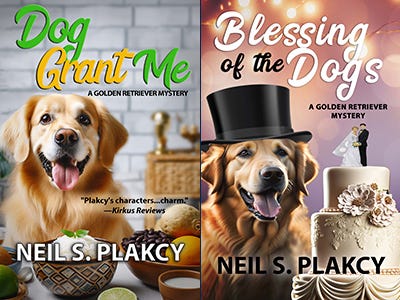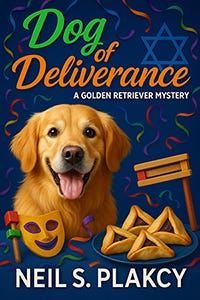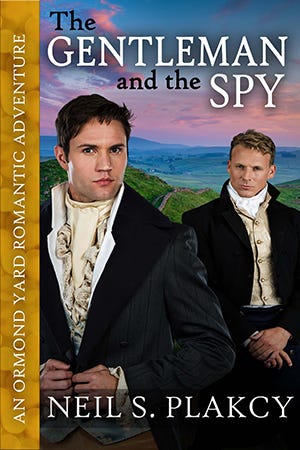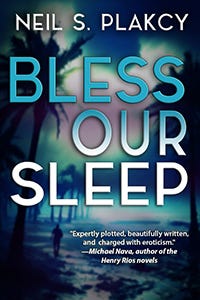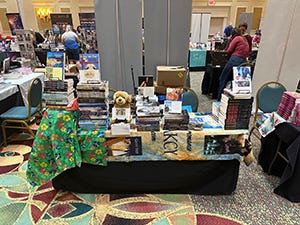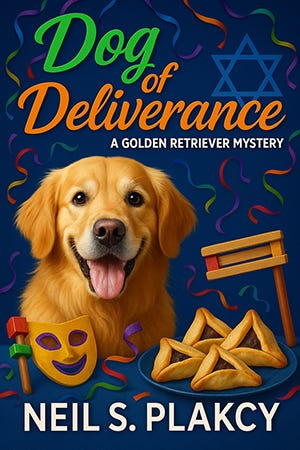My Queen Esther Moment
Dog of Deliverance releases today
It’s been called a “Queen Esther moment,” a time when someone feels compelled to stand up for his or her people. It refers to the Jewish holiday of Purim, when Esther, wife of the Persian king Ahasuerus, revealed her Jewish identity to the king. This was dangerous because the king’s vizier, Haman, was trying to have all the Jews in the kingdom killed.
My moment has been coming for a while, spurred by the October 7 attack by Hamas on Israel. Steve Levitan, the human hero of the golden retriever mysteries, has always been Jewish, and holidays like Hanukkah have come up in the series.
Of late, though, Judaism has become more important to me, and thus to Steve. In Blessing of the Dogs, Steve and Lili had a wedding at Shomrei Torah, the synagogue where Steve grew up. I gave them the wedding I wish I’d been able to have.
In Dog Grant Me, I explored Lili’s cultural background as a Juban—a Cuban Jew. Now in Dog of Deliverance, I’m using the Purim spiel (or story) as the structure for the novel. You don’t need to know anything about Purim, or Orthodox Judaism, to enjoy the mystery, but I thought I’d provide a little background.
Some time ago, my friend Zita Goldfinger told me about a visit to the Orthodox Jewish community of Kiryas Joel, outside New York City, where the leaders’ strict interpretation of doctrine left many community members lacking in education, health care, and basic civic services.
I spun that into a young woman’s crusade to overthrow the leadership of her community and make things better for everyone. A Queen Esther moment. Then I built the mystery around her and her crusade, adding in a subplot about another powerful man with bad intentions.
Lots of research went into the book, and I was fortunate to have Zita review the manuscript and correct many errors about Orthodox Judaism. Any that remain, of course, are my own responsibility.
I love mysteries that expose me to different cultures, so I hope readers will enjoy this dive into an aspect of Judaism that is mysterious to many. There is much joy in such communities—I love watching YouTube videos of Orthodox men in long coats and fur hats dancing with abandon. I hope I’ve shown all sides.
Dog of Deliverance released today on Amazon and all other e-booksellers. It will remain widely available for at least ninety days, when I’ll enroll it in Kindle Unlimited along with the rest of the series, which is already there.
Until next week, with love and gratitude,
Neil
